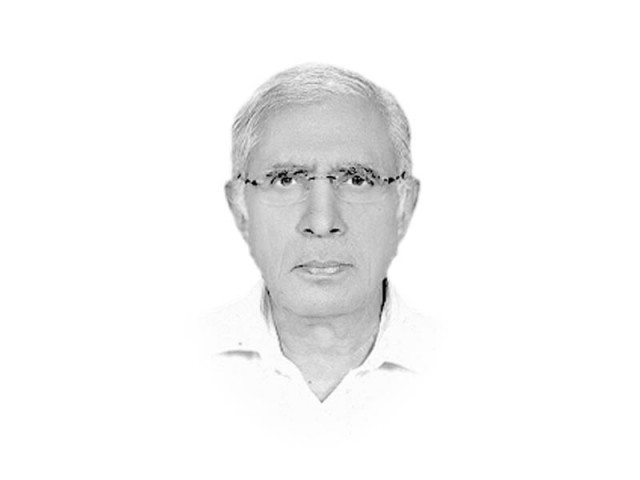A charter of economy
The services of Joseph E Stiglitz must be hired for drawing-up the right kind of a charter of the economy for Pakistan

The writer served as Executive Editor of The Express Tribune from 2009 to 2014
But perhaps, it is not the separation of the economy from politics that Senator Dar wants to achieve but a genuine fusion between the two — a charter of the economy on the lines of the charter of democracy, so that at least over the next seven to ten years, the country pursues a bi-partisan economic policy to achieve an annual economic growth rate of 8-10 per cent with the fruits of this growth being shared with equity by all sections of society, thus enabling those below the poverty line to step up the ladder and those that are on the top give a helping hand to the ascending population.
This is a very desirable goal. Of course, the two political parties — the PPP and the PTI — which would be contesting against the ruling PML-N in the next elections would find it politically impossible to be seen as not differing with the ruling party on the economic policy during the election time. Even the PML-N would find it as difficult not to talk about the ‘successes’ of its own economic policies during the campaigning.
But the leadership of the three political parties need to understand that national economy cannot be allowed to be held hostage to the political ambitions of political parties for long. Such a divisive approach of the political parties towards the economy would only keep the nation in a perpetual poverty trap.
In this regard, the ruling PML-N should take the initiative and invite the leadership of all the mainstream political stake holders as well as the major state actors who have been dictating our economic policies from behind the scenes all these years, for a closed-door consultation in order first to agree on irreducible minimum and then open bull sessions in front of TV cameras until an agreed charter is finalised and signed.
It would perhaps help if before undertaking the task, a lecture tour of the country is arranged by the government for the Nobel Prize winner for economics (2001), Joseph E Stiglitz, former chief economist at the World Bank and author of two priceless books, The Price of Inequality and Globalization and Its Discontent. And if possible, his services could be hired for drawing up the right kind of charter of economy for Pakistan. Here is a passage from chapter 10 (“The Way Forward: Another World is Possible”) of his book The Price of Inequality (Pp334-335):
“ A more efficient economy and fairer society will also come from making markets work like markets — more competitive, less exploitative — and tempering their excesses. The rules of the game matter not just for the efficiency of the economic system but also for distribution. The wrong rules lead to a less efficient economy and a more divided society.
“Investing more in our society — in education, technology and infrastructure — and providing more security to ordinary citizens will lead to a more efficient and dynamic economy, one more consistent with what we claim to be and offering more opportunity to a wider segment of the society. Even one per cent [those who are there now] may benefit when the capabilities of so many at the bottom are not squandered. And many more people will have a shot at one day being in the one per cent.
“Finally, making the society more equal is likely to affect the prevailing ideology that influences our microeconomic and macroeconomic policies. We have identified several myths on which this ideology depends. We can break out of the vicious cycle where the political domination of the top leads to beliefs and policies that enhance economic inequality and reinforce their political domination.”
Published in The Express Tribune, March 12th, 2016.
Like Opinion & Editorial on Facebook, follow @ETOpEd on Twitter to receive all updates on all our daily pieces.














COMMENTS
Comments are moderated and generally will be posted if they are on-topic and not abusive.
For more information, please see our Comments FAQ